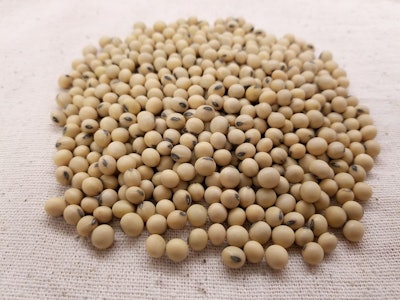
Landus Cooperative announced it will covert its beef feed mill in Jefferson, Iowa, into a state-of-the-art custom seed treatment, with additional space for storing necessary treatment products.
According to reports, Landus will consolidate up to 15 other seed treatment facilities into the Jefferson facility.
President and CEO Matt Carstens told Raccoon Valley Radio the facility in Jefferson, which closed as a feed mill two years ago due to low product demand, has good access to highways and interstates.
The new seed treatment operation will handle both corn and soybeans, with its main focus on soybeans. Carstens anticipates making the $1.1 million investment later this year with the facility fully operational by the 2024 planting season.
Reconstructed Jefferson cooperative facility
The company made the seed treatment operation announcement June 15 during a media open house at its reopened, reconstructed Jefferson cooperative.
In May 2021, the Jefferson facility had an explosion that caused considerable property damage but no injuries. Smoldering grain in one of the silos caused the explosion, which blew the tops off of at least four of the bins and destroyed some walls. Sides of the buildings crumbled and the catwalks collapsed.
Green County News reported demolition of the damaged main elevator and one of the three grain pits finished in January 2022.
The elevator construction and renovation was completed in April 2023. The first train load of grain was shipped from Landus Jefferson on April 26.
Landus said the modernization of the concrete elevator design reduces the risk of an occurrence similar to the 2021 explosion happening again. The facility features two new 20,000 bushels/hour receiving pits with full drive-over dumps. Total receiving capacity is now 80,000 bushels/hour with four pits.
The facility can now load a full unit train at a rate of 80,000 bushels/hour. A new dryer location was added, increasing drying capacity by 6,000 bushels/hour, and expanding the true wet holding capacity from 80,000 to 800,000 bushels.
The facility has a total corn and bean storage capacity of 7.3 million bushels.

















